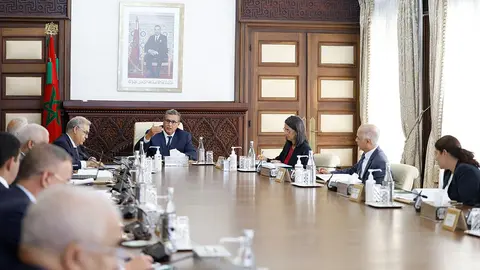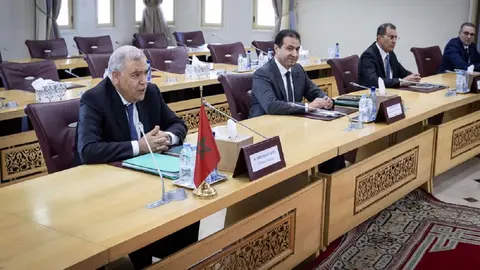Macron's wake-up call for a Europe that may die

Macron chose a majestic setting, in keeping with the importance he wanted to give to his message, the impressive amphitheatre of the Sorbonne, with the French flag on the lectern and a huge banner behind it, on which he inscribed two of the key points of his speech: a Europe of power and a Europe that controls its borders.
He gave almost two hours of a dense speech, in which he displayed his mastery of languages, using not only French, but also Spanish, English, German and Polish. Acknowledging that while much had been achieved, notably the collective fight against the pandemic and the response to Russia's aggression in Ukraine, Macron admitted that some endeavours had not been crowned with success. This was the preamble to a programme that, although it has been branded as electioneering by the supporters of Marine le Pen, who is by far the leader in the polls, constitutes a veritable catalogue of measures that cannot be ignored if Europe does not want to fall into irrelevance.
The three main areas in which Macron is asking the EU to decide to act decisively are defence, the economy and culture, which in his opinion form the foundations on which the future of the EU conglomerate rests, and which will determine its viability and the final place it will occupy in the new order that, whether we like it or not, is taking shape.
The French president wants a Europe that counts as a true power in defence matters, "that makes itself respected, guarantees its security and ensures its strategic autonomy". To this end, he will present to other leaders what he calls "a European defence initiative", which could include a continent-wide missile defence shield. Systems and armaments that will require sufficient investment and political will to form a truly European defence industry, which should be given "preference" over the current dependence on American manufacturers and suppliers. This powerful Europe must deal with the main danger, which in Macron's view is obviously the war in Ukraine, which must be defended because our own security is at stake.
Strategic autonomy also means, according to the French head of state, that Europe must "regain control and mastery of its borders, an issue for which he proposes a political structure that takes on immigration, security and the fight against organised crime and terrorism. The lack of control or coordination in these already lethal areas would pose an even greater threat to a Europe that many see as a fortress to be weakened and assaulted.
Macron aspires to a Europe that will be a world leader by 2030 in terms of economy and trade, but this requires more investment and joint action in the "five strategic sectors of the future": artificial intelligence, quantum computing, space, biotechnology and new energies such as hydrogen, modular reactors and nuclear fusion. At the same time, he calls for a review of European trade policy, given that "neither China nor the United States respect the [world] trade rules as they were written fifteen years ago".
In addition, Macron advocates the inclusion in the European Central Bank's list of missions of "a growth objective, including decarbonisation", which will require doubling the EU's financial investment capacity.
No less important is his proposal that the age of majority in the EU should be lowered to 15, while at the same time strengthening parental control of children under that age over access to social networks, and he justifies this by saying that while "we prohibit racist and anti-Semitic manifestations and hate speech, we must also do so in the digital space, where the presumption of anonymity leads precisely to disinhibition and hatred".
And, on the cultural question, Emmanuel Macron advocates that the Europe of tomorrow must be rooted in humanism, the matrix that gave rise to all the essential principles of individual and collective freedoms, in short, democratic life. He defined this "European humanism as that which defends a certain idea of man, which places him above all else as a free, rational and enlightened individual".
In order to give some reason to those who would accuse him of electioneering, the French president concluded his almost two-hour speech by accusing the nationalists of "wanting to live and remain in the European building, but without paying the rent or respecting the rules of co-ownership", while defending the permanence and reinforcement of the conditionality of European aid so that the recipients respect the rule of law.
The campaign for the European elections has begun, and the candidates from the other countries will not be able to avoid the key questions raised by Macron. In any case, the debate should be a wake-up call for a European Union that is lagging behind in many important areas.



